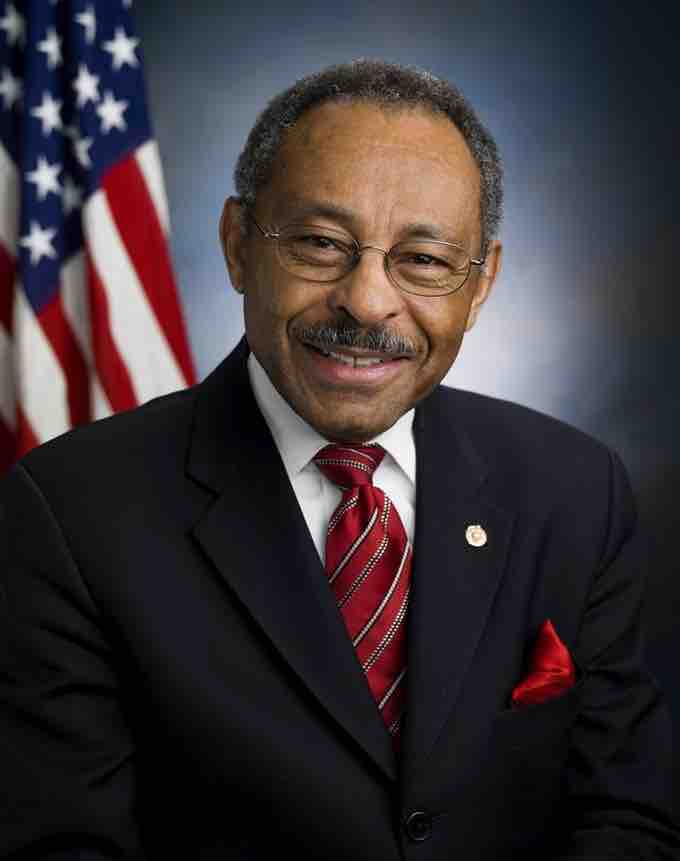Collectively, African Americans are more involved in the American political process than other minority groups, indicated by the highest level of voter registration and participation in elections among these groups in 2004 . African Americans collectively attain higher levels of education than immigrants to the United States. African Americans also have the highest level of Congressional representation of any minority group in the U.S, though this doesn't extend to the senate .

Voter Turnout by Race, 2008 Presidential Election
This is a chart illustrating voter turnout by race for the 2008 Presidential Election using data from the U.S. Census Bureau.

Senator Roland Burris
Although African Americans have high political participation rates, they are underrepresented in political office. Senator Roland Burris, of Illinois, is currently the only African American senator.
The large majority of African Americans support the Democratic Party. In the 2004 Presidential Election, Democrat John Kerry received 88 percent of the African American vote, compared to 11 percent for Republican George W. Bush. Although there is an African American lobby in foreign policy, it has not had the impact that African American organizations have had in domestic policy.
Historically, African Americans were supporters of the Republican Party because it was Republican President Abraham Lincoln who granted freedom to American slaves; at the time, the Republicans and Democrats represented the sectional interests of the North and South, respectively, rather than any specific ideology—both right and left were represented equally in both parties.
The African American trend of voting for Democrats can be traced back to the 1930s during the Great Depression, when Franklin D. Roosevelt's New Deal program provided economic relief for African Americans. Roosevelt's New Deal coalition turned the Democratic Party into an organization of the working class and their liberal allies, regardless of region. The African American vote became even more solidly Democratic when Democratic presidents John F. Kennedy and Lyndon B. Johnson pushed for civil rights legislation during the 1960s.
African Americans tend to hold far more conservative opinions on abortion, extramarital sex, and raising children out of wedlock than Democrats as a whole. On financial issues, they are in line with Democrats, generally supporting a more progressive tax structure to provide more services and reduce injustice and as well as more government spending on social services.